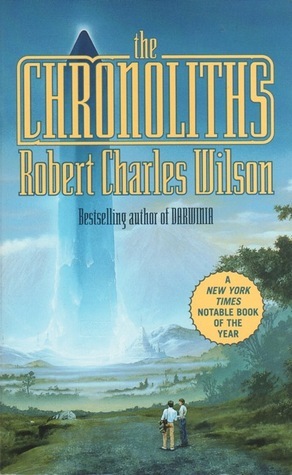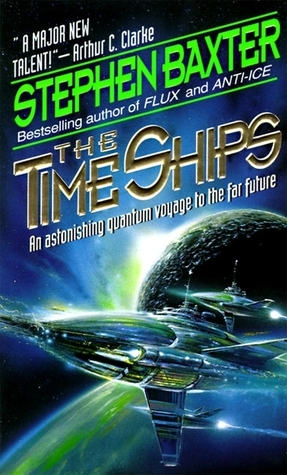
The Chronoliths
Book Description
What happens when time itself becomes an enemy? As colossal structures known as chronoliths appear across the globe, each heralding the rise of a tyrant from humanity's future, society spirals into chaos. In the wake of these ominous monoliths, a man is drawn into a web of government conspiracies, personal loss, and a desperate quest for truth. Friends become foes as he races against time to unravel the mysteries of the future and prevent a dark destiny. With everything at stake, can he alter the course of events, or is humanity doomed to repeat its worst mistakes?
Quick Book Summary
"The Chronoliths" by Robert Charles Wilson presents a world turned upside down by the sudden appearance of massive monoliths—known as chronoliths—from the future. These structures commemorate the victories of a warlord named Kuin, whose rise is yet to occur, but the monuments instigate global unrest and influence present events. The novel follows Scott Warden, who is swept into a struggle against political chaos, personal strife, and the enigmatic force shaping the future. As society fractures, the chronoliths catalyze the emergence of cults, civil disorder, and desperate attempts to understand or control destiny. The novel explores the nature of time, fate, and human agency, as Warden and others attempt to avert a cataclysmic path shaped by the monoliths’ prophecy.
Summary of Key Ideas
Table of Contents
Causality and the Paradox of Time
The sudden emergence of the chronoliths—mysterious, indestructible monuments from the future—throws the world into turmoil. Each monolith bears an inscription celebrating a future triumph by Kuin, a currently unknown warlord, setting a countdown to his rise. For the protagonist, Scott Warden, the first sighting in Thailand becomes a catalyst for a personal and worldwide odyssey. The existence of these structures challenges humanity’s understanding of causality, as the monuments’ mere presence seems to ensure the future they commemorate.
The Impact of Foreknowledge on Society
As news of the chronoliths spreads, societies react in unpredictable ways. Governments form specialized response teams, conspiracy theories flourish, and Kuinist movements emerge, rallying around or against the prophecy encoded in stone. The tension between resignation and resistance divides nations, fostering both radicalization and fatalism. The psychological toll manifests in widespread paranoia and a crumbling sense of agency, as every new chronolith confirms the shadow of Kuin’s future dominance and erodes trust in political institutions.
Personal Loss and Redemption
Scott Warden’s journey is marked by profound personal loss intertwined with the global crisis. His marriage deteriorates, his relationships are strained, and his daughter becomes entwined with the Kuinist movement. Despite his failures, Scott’s enduring hope for redemption drives his actions. His involvement with government scientist Sue Chopra intensifies when he is drawn into efforts to understand and disrupt the chronoliths’ timeline, blurring the boundaries between personal motives and high-stakes gambits affecting humanity’s fate.
The Mechanics of Fate and Free Will
The presence of the chronoliths throws into question the nature of free will versus determinism. The world’s attempts to confront, contain, or even harness the power of the monoliths center on the hope that the future is mutable, not fixed. Scientific and military responses, led by Chopra and others, aim to understand whether it’s possible to disrupt Kuin’s ascendancy by interfering with chronolith events. This struggle embodies the larger existential battle: Can the knowledge of future disaster empower people to alter outcomes, or does it merely ensure destiny unfolds as predicted?
Societal Collapse and Adaptation
Warden’s quest culminates in a direct confrontation with the ideas shaping the chronolith phenomenon. The novel’s resolution suggests that while knowledge of the future can inspire despair or fanaticism, it can also spark resilience and unity. Ultimately, "The Chronoliths" leaves readers questioning the limits of agency and the ripple effects of both individual and collective choices. Wilson’s speculative vision underscores the enduring human struggle to find meaning—and hope—in the face of an uncertain and seemingly predetermined future.
Download This Summary
Get a free PDF of this summary instantly — no email required.





